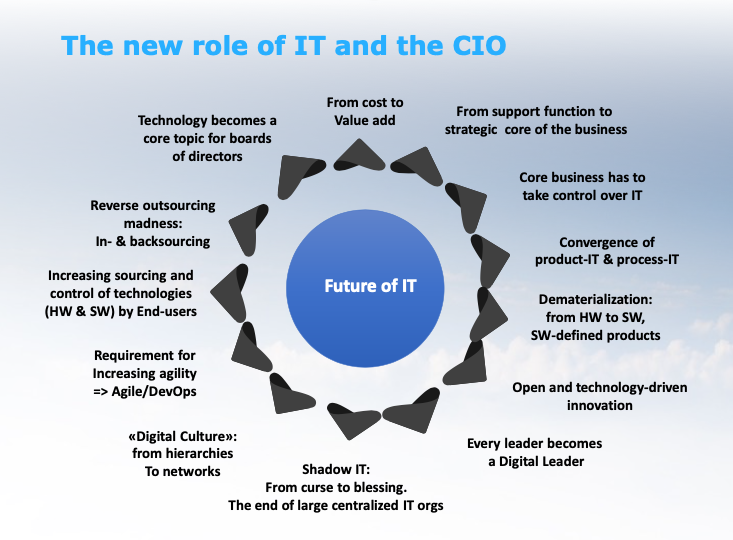In recent years, digitalisation and digital transformation have become key topics that every business needs to think about.
I use digitalisation in this context to mean companies employing state-of-the-art technology to automate their established business processes within their established business models and markets, while digital transformation involves a company using technology to explore new business models or markets, redesign its core processes based on technology and/or develop new products and services using information technology.
While I don’t want to go into more detail about the difference between the two terms (which have now largely become buzzwords) I would like to discuss a few aspects that are impacting on the role of the CIO of companies going through digitalisation and/or digital transformation.
With technology – and IT in particular – becoming an inherent core component of the business, it can no longer be treated as a support function delegated to a CIO and mostly focussed on running the back office; it has now evolved into a key strategic component of the business. Therefore, the person in charge of IT within the company – let us assume this is still the CIO – will have a different and much more strategic role to play. Some of the “traditional” ways of managing IT within a company will have to drastically change. What worked well in the past might not be the right thing anymore when it comes to future developments.
I have identified a number of trends that I believe will heavily influence the future role of CIOs (I make no claims that this list is conclusive):

IT no longer is just a support function but becomes a strategic asset and core of the business: from cost to value add
The impact of the above outlined trends will result in a number of changes that “traditional” CIOs will have to carefully think about if they want to stay relevant within their companies. In my view, the only way for established CIOs to survive in their roles is to drastically disrupt and re-invent themselves.
The changes discussed in the following chapters are in no way conclusive but it has already become apparent that they are significant enough to call into question the traditional role of the CIO.
Questions, feedback and comments are highly appreciated: . Next Chapter: https://staging.acent.de/the-future-role-of-the-cio_2/
Fragen, Feedback und Kommentare zu diesem Beitrag senden Sie bitte an acent.marketing@acent.de
Patrick Naef | 02.10.2019


